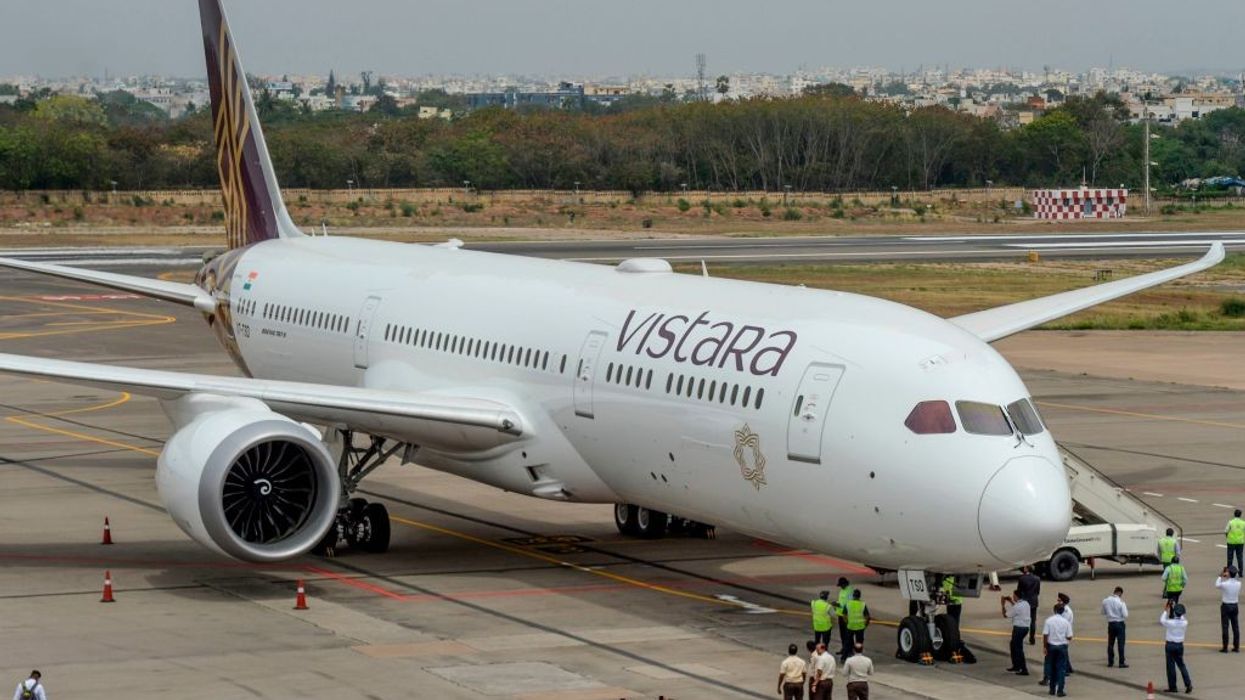Tata Group-owned Air India is planning to send a set of first officers to Vistara, which is grappling with a pilot shortage, according to multiple sources.
The pilots will be sent to Vistara, a Tata joint venture with Singapore Airlines, on deputation, subject to getting necessary regulatory approvals. Air India and Vistara did not offer any comments.
The sources told PTI that some first officers who can operate A320 family planes will be sent to Vistara on deputation.
Two sources said the number of pilots likely to be deputed to Vistara could be over 30.
One of the sources said it will be the first time that pilots from Air India will be deputed to Vistara for operating narrow-body aircraft.
For operating Vistara's wide-body Boeing 787 planes, around 24 pilots are already on deputation from Air India.
Vistara has cut its operational capacity by 10 per cent or 25-30 flights daily due to pilot issues.
The full-service carrier has around 6,500 staff, including 1,000 pilots and 2,500 cabin crew. The airline is in the process of merging with Air India.
Recently, the airline faced significant flight disruptions due to non-availability of crew.
Many pilots had reported sick to protest against the new contract that would result in pay revisions and there were also roster issues.
Vistara has a fleet of 70 aircraft, including 53 Airbus A320 neos, 10 Airbus A321s, and 7 Boeing 787-9 Dreamliner aircraft.
On April 5, Vistara CEO Vinod Kannan told PTI that flight disruptions were mainly caused by a stretched roster for pilots and the operations would normalise by May. (PTI)




